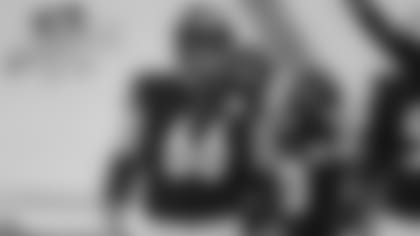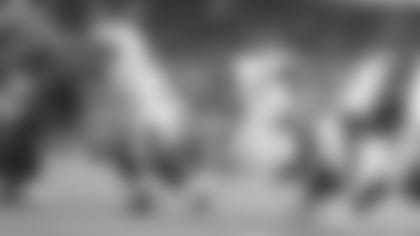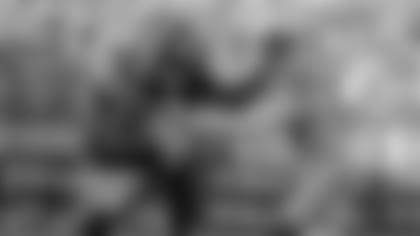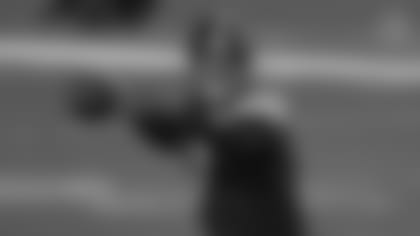Q. Miami is winless through this point of the season, they arrived here tonight at 0-6, and some of their statistics and league rankings are ugly. Is it a hard sell to your players in a case like this when you're telling them the Dolphins are capable of winning this game?
A. No, and not because of the Dolphins but because of us. We have to be realistic about where we are. We're a 2-4 football team. Our journey has not been pristine by any stretch. We're fighting and scrapping and clawing. Our present state dictates that we don't take anyone lightly, that we have to play hard, and the quality of our execution is going to be significant in terms of determining the outcome of the game.
Q. At your news conference last week, you said, "We'll be challenged, obviously, to come off the bye week and not start slow." Besides talking to the team about that, what can a coach do to help avoid starting slow?
A. There are some schematic things we can do in terms of our aggression that can stimulate a start in all three phases, and we have to be prepared to do that. Obviously it's up to the guys to bring the energy and enthusiasm and to play with the speed and fluidity like a group that played in a game last week. And you get in a rhythm in this thing in the NFL, and playing week in and week out is a part of that. There is a break in that rhythm, and although it's a break that you covet, there's a break in that rhythm that exists during the bye week. They have to get back on that train and get moving, and we're capable as a staff through schematics in terms of being aggressive to aid them in that.
Q. Not to ask you to give anything away, but what are some examples of how schematics can help a team avoid a slow start?
A. Calculated risk-taking on offense that produces splash plays, aggression on defense that can stimulate some negativity for the opposing offense, aggressive decision-making in the kicking game whether it's in coverage or in the return game. There is risk associated with all of those things I'm talking about, but risk worth taking if you feel a lull in your group.
Q. This will be the first game since Stephon Tuitt went on the injured reserve list after surgery to repair his pectoral. What's the plan tonight in the effort to replace him?
A. It's going to be multiple people. You talk about the impact of a guy like Stephon Tuitt, it's going to be multiple people. It's not on Javon Hargrave singularly. It's going to be on other defensive linemen singularly. But you're also going to see some of it will be on Vince Williams. Vince Williams is an inside linebacker who has shown over the years that he is a capable blitzer and rush-man, and we'll have a rover package on some possession downs where essentially Vince Williams will act as a fourth rusher.
Q. When a player is injured and is going to miss significant time, is your preference to keep everyone else in their current spots and just replace the injured guy, or are you willing to shuffle personnel around and make multiple moves to replace one guy?
A. I'm willing to do whatever it is we need to do to put our strongest group out there. Position flexibility and player flexibility aids them and us, and we're not bashful stating that to them. We state that to them continually because it's true. This is not checkers, it's chess. We have to be willing to do whatever is required to put our best combination of people out there. If that means A, B, and C involved in movement, then certainly.
Q. What kind of cornerback play is necessary to dissuade the opposing quarterback from even targeting the receiver on his side of the field?
A. It's simple: ball skills. I don't care what you say, quarterbacks calculate risk as it relates to defensive backs and whether or not they challenge them. They stay away from the guys who can catch the ball. They stay away from guys less who are capable of stopping receivers from catching the ball, but the cornerbacks who are capable of catching the ball are the guys who create pause in the quarterbacks. Those are the guys who are the elite of the elite, the guys who can produce turnovers and get defenses off the field.
Q. Does that describe the kind of play you were getting from Steven Nelson before he was injured and missed the game vs. the Chargers?
A. He was denying throws, but he wasn't catching the ball. He's done a great job of standing up, but the job he's doing will become elite when he starts catching the balls that he's breaking up.
Q. How would you evaluate Mason Rudolph's play during his brief time as the starting quarterback here?
A. I think he's done some really good things. He hasn't had a complete body of work in an effort to grade him globally in terms of the direction he's going, not only in 2019 but in his career. He'll be writing that story in the upcoming weeks and months as we push through this thing. What we'll ask of Mason Rudolph will be significantly more than we asked of Devlin Hodges a week ago, and it's just the nature of their journeys, their exposure to football, their exposure to football here. It's reasonable to expect Mason to throw the ball down the field and so forth. I don't know how many times we asked Duck to throw the ball down the field against the Chargers.
Q. Excluding injury, what would have to be the circumstances where you would make a change at quarterback during a game?
A. It's always a feel thing. I don't have a checklist, if you will, in terms of decision-making in regards to that. When you're in that space and you're in that place, you know it.
Q. If you would find it necessary to make that change, can you go back to the original starter the following week, or is that a change that when made is made for more than just the one game?
A. Again, it is a feel circumstance. I am always committed to that feel, that gut instinct approach. Sometimes with a quarterback, the kitchen is just hot and he needs out of the kitchen that day. Sometimes it might be a circumstance where the guy's in in the tank, and he needs to take a step back and rebuild some fundamentals and so forth. Every situation is one that stands on its own. You better look at the variables involved in that situation, you better not have a cookie-cutter approach to it, you better trust your gut instincts and what you're looking at.
Q. Do the players at other positions look at a change at quarterback differently than they might view a change at tight end, or at guard?
A. They do not. They have to deal with it differently. They have to address it differently if it occurs, because it becomes something that becomes media-worthy and they get questions about it. But in terms of their perspective on it, they view it no differently than any other position whether a guy is performing above the line or not.
Q. There is a lot of talk about tanking in various professional sports. The NBA and Major League Baseball both have had some examples. Could tanking work in the NFL?
A. I think it's less of a deal in our game because of the scarcity of games. You only have 16 regular season opportunities, so by the time you realize who's good and who's not you're well into the journey. I think those 82-game seasons, or those 160-plus game seasons really lend themselves more to those strategic judgments and the speculation that goes along with it. The scarcity of our games, the limited number of opportunities to state your case of who's worthy of the playoffs doesn't create a lot of latitude for those kinds of things.
Q. You study the draft extensively every year. Can some high picks in successive rounds in a draft that turn a whole team around?
A. Not like in basketball. If you get the first pick in an NBA draft, that's changing the course of history for your franchise. That's not necessarily so in the ultimate team game, an 11-man game like football.














